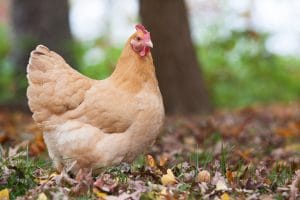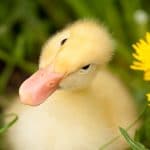Menu
Menu
close
Keep Chickens and others healthy with this water additive!
***This page contains additional information as well as Instructions for Use for this product. Please scroll down and select tabs to read more.***
**For many reasons, printed information and Instructions will not be provided with orders.**
Price range: $1.95 through $44.95

If you're on this page, chances are you do too! The chickens, ducks, and guinea fowl we share our lives with are definitely not "just farm birds"! We adore them. Watching them peck around the yard, hearing the occasional crow, feeding our ducks treats - just makes my heart smile. If they grace us with a few eggs, we gladly relish the opportunity to have super healthy, happy, free-ranging, free-roaming, nutrition-packed egg sources. But if our fowl never gave us eggs for the table, we would still love sharing our days with them!
But because we may eat our "family eggs" or feed them to our dogs - you can be sure that I don't want them filled with medicated feed or from chickens and fowl who might be ill in any way. Essential oils have proven to keep our chickens healthy, drinking regularly and adequately, and laying with normal and desired frequency. When batches of chicks are purchased - there is often an expected amount of mortality. Medicated feeds or even vaccinations are often recommended in an effort to reduce chick loss - however, this is certainly not what I desire for my own home flock. And, there is a lot of research being done on essential oil use in the poultry industry.
A variety of intestinal concerns from Coccidia to Giardia can occur in a variety of avian species - not just chickens. There is great research showing that Clove Essential Oil has demonstrated anti-giardia activity - as stated in this Research Article. While THIS Research Article shows that Clove Essential Oil also has gastro-protective properties. As a veterinarian, the multi-layer ability of an essential oil to support health, is just amazing. There are just not many traditional medications that cover so many benefits. Peppermint and Eucalyptus was shown in this Research Article to have effects against coccidiosis, and Oregano showed its benefits HERE and HERE... and the research goes on and on.
 It's certainly not just chickens who have these issues - nor are they the only species for which ChickyWicky was intended. Cockatiels are quite often diagnosed with Giardia, and other species such as ducks, turkeys, parrots, finches, pea fowl, etc... can suffer from contagious flock situations, poor immune function, viral infections, bacterial infections, respiratory concerns, diarrhea, poor egg production, hormone fluctuations, parasites, stress, and more. To me, the complete ability of essential oils to not only address physical concerns, but also to aid in emotional support - provides the best options in health for our feathered (and non-feathered) friends.
It's certainly not just chickens who have these issues - nor are they the only species for which ChickyWicky was intended. Cockatiels are quite often diagnosed with Giardia, and other species such as ducks, turkeys, parrots, finches, pea fowl, etc... can suffer from contagious flock situations, poor immune function, viral infections, bacterial infections, respiratory concerns, diarrhea, poor egg production, hormone fluctuations, parasites, stress, and more. To me, the complete ability of essential oils to not only address physical concerns, but also to aid in emotional support - provides the best options in health for our feathered (and non-feathered) friends.
The "classic" essential oils within ChickyWicky target the prevention of illness due to bacteria, viral infections, intestinal parasites, tumors - but oils such as Fennel, Caraway Seed, and Celery Seed also aim to provide support to a normal and functional hormonal system, egg cycles, egg deposition (laying) - as well as emotional support and stress relief. It truly is a full "bird-supporting" blend!
Essential Oils of Lemon (Citrus limonum), Clove (Eugenia caryophyllata), Oregano (Origanum vulgare), Rosemary Cineole Chemotype (Rosmarinus officinalis), Lemongrass (Cymbopogon flexuosus), Peppermint (Mentha piperita), Fennel (Foeniculum vulgare), Melaleuca alternifolia, Eucalyptus radiata, Copaiba (Copaifera officinalis), Basil (Ocimum basilicum), Frankincense (Boswellia carterii), Thyme (Thymus vulgaris), Cinnamon (Cinnamomum zeylanicum), Citronella (Cymbopogon nardus), Celery Seed (Apium graveolens), Caraway Seed (Carum carvi), Lavender (Lavandula angustifolia)
Birds, Chickens, and Other Avian Species: These are the species that ChickyWicky is intended for. ChickyWicky is mainly added to Drinking Water, however it can be added to foods as well. If your bird is an avid bather in their drinking water container, you may need to consider a different essential oil blend for their health support - such as Sunshine in a Bottle. Due to the fairly aggressive oils within ChickyWicky - such as Oregano, Clove, Cinnamon, Thyme, and Peppermint - there could be unpleasant sensations if contact is made with the eyes or other sensitive areas. Please read more about adding essential oils to Drinking Water by CLICKING HERE.
In general you should start with 1 drop of ChickyWicky added per 1 Liter of drinking water, and mix well. I mix and store my essential oil water in a 1/2 gallon glass canning jar if needed, or mix directly in my chicken waterers. I will generally attempt to use the mixed water within a week, and will make a fresh batch if a bird has not consumed that entire amount in that time frame. For our chickens, we are often changing out the water every day to every other day - and will make a fresh batch at that time. Always provide an alternate source of plain drinking water for your bird - as described on the Drinking Water educational page linked previously. And, when possible, use a glass or stainless steel vessel to hold your essential oil solutions - as Lemon and other essential oils have been known to degrade plastic, rubber, and could interact with non-inert materials. However, at the dilution rates of 1-3 drops added to a liter of water - we have rarely seen issues with typical metal or plastic poultry water containers. We have also used the essential oils added to drinking water throughout our Minnesota winters, which require the use of a water heating device. The oils have been just fine, as we are mainly keeping them from freezing, and not overly heating the water.
Caution should be used with essential oils and automatic watering machines and equipment. Careful evaluation of all of the parts and especially any rubber gaskets, should be considered if they are going to contact the essential oil solutions. Degradation of these parts could occur, depending on the concentrations used.
If you wanted to add ChickyWicky to food, you certainly can. For species such as poultry - you are honestly better off just adding it to their water. They accept if very readily, and their feed items are usually less accepting of having essential oils mixed into them. Many of the studies adding essential oils into feeds, were done as a recipe addition - and not added after-market as you will be doing. Soft foods such as cooked sweet potato, applesauce, oatmeal, and such - accept essential oil additions VERY well. If you are feeding these sorts of items to your chickens or other poultry - then you could add ChickyWicky into them, but I really do find you are better off just putting it in their water source! Parrots and other similar birds, often do eat soft, mushy (and especially warm) foods such as these, and so sometimes adding essential oils into their foods can be effective and advantageous - especially for those parrots or finches who bath in their water dish.
To add ChickyWicky to food, I will add approximately one drop or less to 1-3 Tablespoons of soft, mushy food. It can be much harder to judge how much essential oil your bird consumes through food items. Some birds throw or drop foods, or they may ingest the entire meal. At this dilution rate, it is unlikely that a bird will eat enough food to eat "too much" essential oil. But, if your bird has a particular favorite food that you know they will eat a lot of, please do consider that much less essential oil may need to be added to the food. Rarely do we know an exact dose that should be consumed by a bird for effective results, so in general we will start with small amounts, and gradually build up to larger offerings until we see desired benefits. This is why over the course of time, we have recommended water additions more than food - it seems to be a bit more of a measured constant between how much essential oil is within the water, and how much water is consumed compared to the weight and size of the bird. Overall, I prefer drinking water addition of ChickyWicky for the majority of cases.
Other Exotics: ChickyWicky is generally not recommended as a Drinking Water additive for these species. Although, ChickyWicky "could" be added to their drinking water, and there is nothing overtly harmful if they should drink water prepared with ChickyWicky - I would suggest that ChickyWicky is not quite a flavor that some animals will enjoy. For species such as Rabbits, Guinea Pigs, or Chinchillas, I would avoid ChickyWicky due to the potentially aggressive anti-bacterial action that it could have within their gut. For these animals Diffusion and CritterBoost would be suggested. You can read more about Exotic Species HERE.
Cats: ChickyWicky is not recommended for cats. However, if they were to drink water prepared with ChickyWicky on their own accord, it would not be harmful. Please see our Cat Page HERE for more recommendations for cats.
Dogs: There are instances when I would recommend offering ChickyWicky Drinking Water to a dog. Especially in situations of bloody diarrhea, coccidia, or giardia. You would still follow all of the Drinking Water suggestions and instructions as previously described, and offer 1 drop per liter of drinking water - while always allowing a plain water source to be available. Some dogs may not enjoy the flavor of ChickyWicky, while others seem to greatly relish it! In these situations, you may find your cat drinking from your dogs' dish - and in these cases we are not alarmed, and will allow the cat to drink ChickyWicky Water if they so desire.
Horses and Large Animals: These animals can certainly have ChickyWicky added to their drinking water as well. Please follow the directions and instructions on the Drinking Water Educational Page HERE.
Only logged in customers who have purchased this product may leave a review.
Reviews
There are no reviews yet.